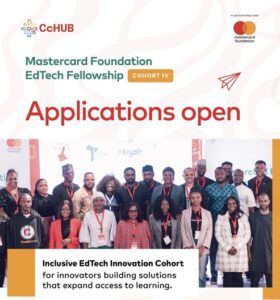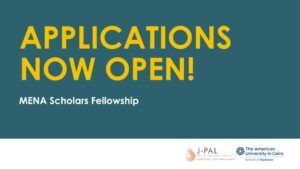lture within their hosting institutions about recruiting women, supporting them along their tenure track, and adapting policies is also paramount to prevent women’s drop out from STEM research and ensure the next generation of mentors and role models for the younger generation of scientists.
The program intends to address the needs of early and mid-career women scientists researching at (inter)national research centers and universities in agricultural-related fields in agro-biotechnology, plant breeding, molecular biology & genetics, microbiology, chemical ecology, plant & soil health. Fellows should be in the process of starting up or consolidating their research teams regardless of whether they hold a project-based research position.
Through the Open Doors, women will enhance their leadership and communication skills and expand their network of colleagues and mentors in Africa and Belgium. Therefore, the Open Doors is a fellowship program where women will improve their competencies and benefit from the training opportunities to increase their chances of leading and participating in new projects, accessing better research resources, and increasing their publication success.
It is paramount to allow women to have enough space to accommodate the training and coaching program with their institutions’ professional commitments and personal lives to make the Open Doors successful and transformational. Hence, our fellows will be sponsored for 24 months to achieve the program’s milestones. Women who experience pregnancy or that encounter health challenges during this period will receive an extension of their program that will be studied on a case-by-case basis by the advisory board of the Open Doors.
Noteworthy, the Open Doors intends to generate awareness at the institutional level and actively engage the line managers of our fellows. We shall achieve this objective by training direct supervisors and providing a stimulus program to impel women’s progression in their careers at these institutions.
Beyond supporting our fellows through our capacity building and incentive’s program, we will sponsor our fellows to conduct activities locally through ‘science on the road’ events and promote women’s role in science and academia within their communities.
The VIB-IPBO has a solid commitment to support of women scientists based in African research institutions and universities. We shall start small by supporting 10 fellows over the next three years. We are working hard to ensure that through our hard work, outreach efforts, and fruitful partnerships with several African organizations and Belgian institutions, the Open Doors program shall grow, expand and contribute towards the empowerment of many more women scientists in Africa.
Eligibility Requirements
- Women researchers in post-doc positions (for at least three years) and mid-career positions experiencing challenges to progress in their career path due to limited access to capacity-building opportunities and international networks.
- Women researchers can demonstrate that they are implementing their ongoing research in Senegal, Burkina Faso, Benin, Nigeria, Ethiopia, Kenya, Uganda, Rwanda, Tanzania or South Africa.
- Women with an employment contract in an (inter)national research centre or university in any of the countries listed above for the fellowship’s time (2022-2024).
- Women researchers with an active line of research in the following agricultural-related fields: agro-biotechnology, plant breeding, molecular biology and genetics, microbiology, chemical ecology, plant & soil health.
- Women researchers that are supervising MSc or PhD students and supporting staff.
Modalities of the ODFP for the short research stay in Belgium
There are two modalities in which applicants in Africa and the research institutions in Belgium can generate a research project to drive the research stage in Belgium to channel a research collaboration throughout the duration of the Open Doors Fellowship Program.
Application Procedure
Documents to fulfil the application process
- A duly filled application (Template for Modality A or B).
- A maximum 3-page CV. Please note that CV with more than 3 pages will not be reviewed.
- A list of publications, including papers, book chapters, technical reviews in indexed journals and patents. Only papers listed in the Web of Science: Master Journal List will be considered valid publications[1].
- A motivation letter from the candidate.
- A signed letter from the applicant’s direct supervisor to indicate how does she/he intend to support the fellow in completing her training program[2]
- A signed letter from the Human Resources Office of the applicant institution indicating the candidate’s contractual situation during the duration of the fellowship program (2 years)and how the centre will support the fellow during the stage in Belgium and after returning to her duty station to complete her training program.
- A signed letter from the research centre in Belgium supporting the applicant’s short research stay (only for Modality B applications).
For More Information:

